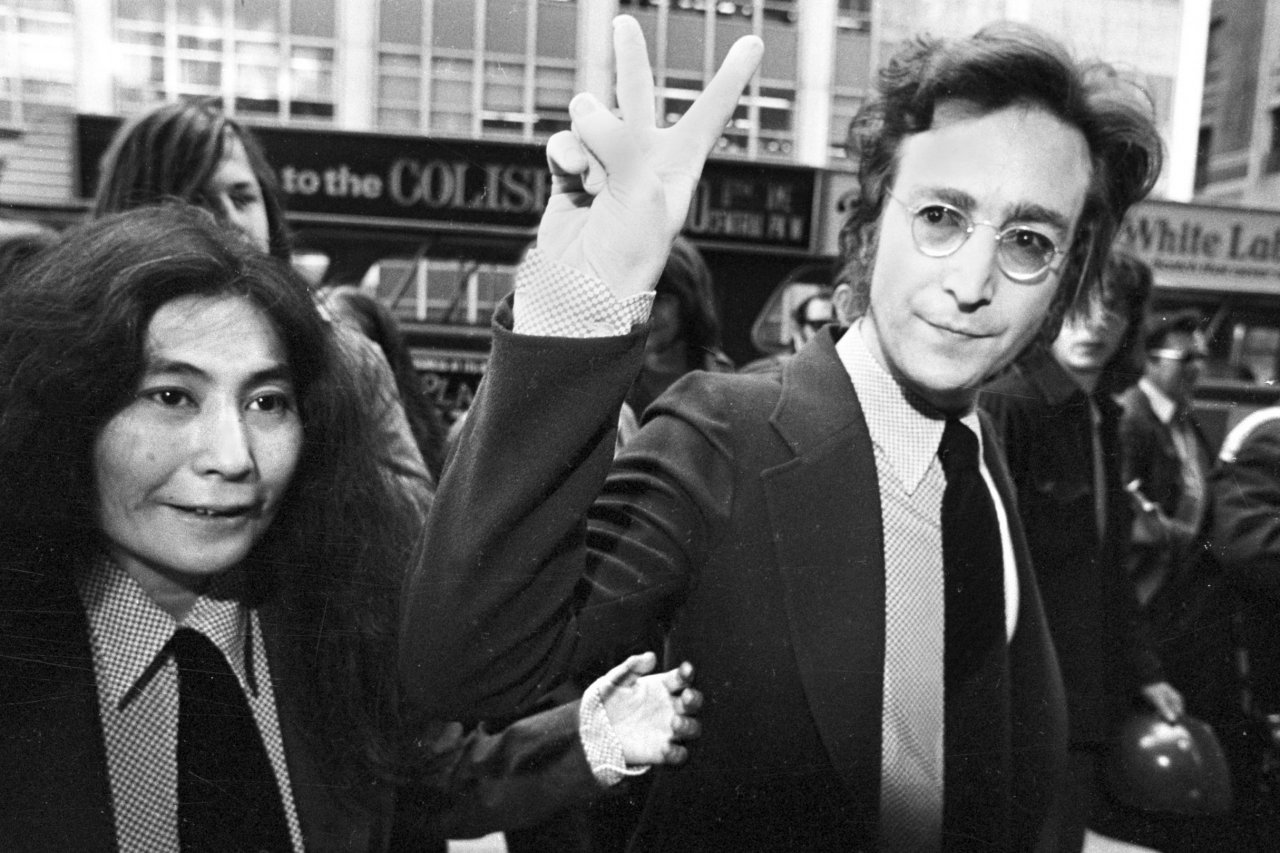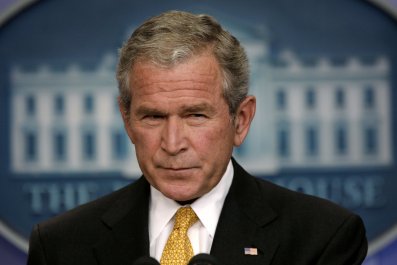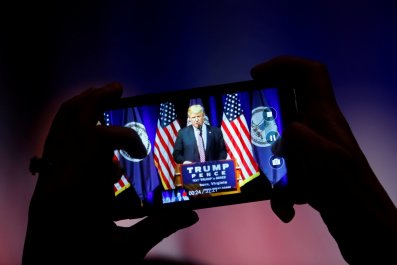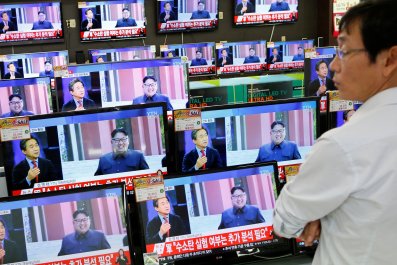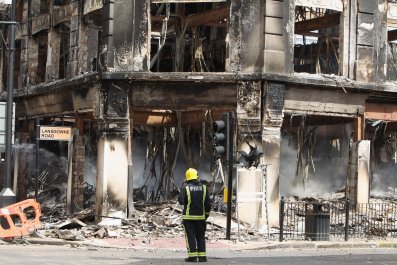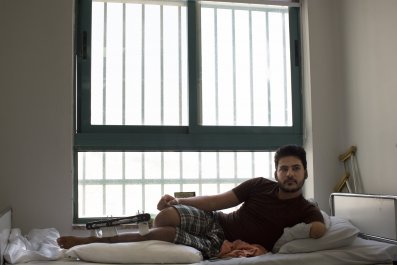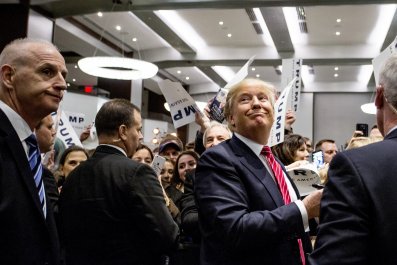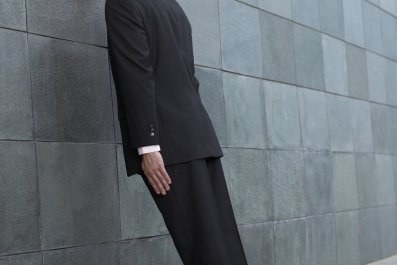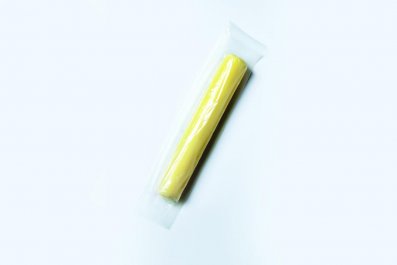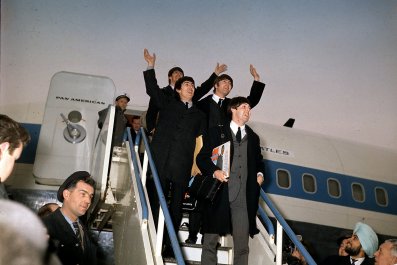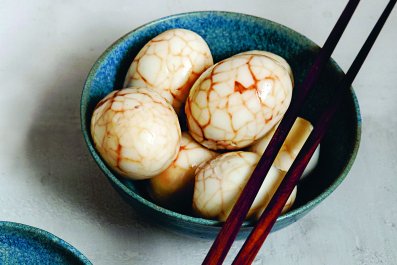In the 1970s, President Richard Nixon, displeased with John Lennon and Yoko Ono's anti-war efforts, attempted to deport them. Lennon hired lawyer Leon Wildes in New York City to fight the case and won. The precedent established formed the basis of contemporary immigration reform: Lennon was a DREAMer, and not the only one. Here, Wildes recalls the first time he met the couple.
The call came on the afternoon of January 14, 1972. "Leon, I have a possible new client for you to meet," a former law school classmate, Alan Kahn, told me. "Real heavyweights, and they don't come to a lawyer's offices. I'm talking about John Lennon and Yoko Ono. They are looking for special immigration counsel, and I have recommended you."
"I'd be pleased," I said. "When and where shall we meet?"
When I arrived at the large and ultramodern offices of Apple Records a few hours later, Alan welcomed me with a broad smile as he showed off his new digs. "Leon, most immigration lawyers would give their eyeteeth just to meet John and Yoko. Let me brief you before you meet Allen Klein, my boss."
"Before you tell me about their legal problem, Alan, I must tell you that I have no idea who these people are."
He stared at me for a moment, open-mouthed. "I can't believe it, Leon. You really never heard of them?"
I shrugged sheepishly. "Never."
"I wouldn't advertise that," he said, lowering his voice. "They have enormous egos, like most of the people in this industry. John Lennon is probably the greatest musician who ever lived. Yoko is his wife. She is some kind of artist, who nobody understands, but everyone has heard of them."
It took about a half-hour in the back of a chauffeured black Cadillac for us to reach the Lennon digs in Greenwich Village. Allen Klein, John's manager, led the way. "I am Allen Klein, and I'm here to see John Lennon," he announced, bulldozing his way past the young man peering through the peephole on the other side of the door.
Once inside, we sat at a kitchenette table, where Alan started unpacking his briefcase and showing me papers regarding their immigration status. I had no more than a moment or two to glance at the documents when the door to a back room opened. A slight woman entered, dressed entirely in black, with Asian features, long black hair and large, expressive eyes. She extended her hand to me, smiled warmly to Alan and almost failed to acknowledge Allen. In return, he didn't seem to notice her.
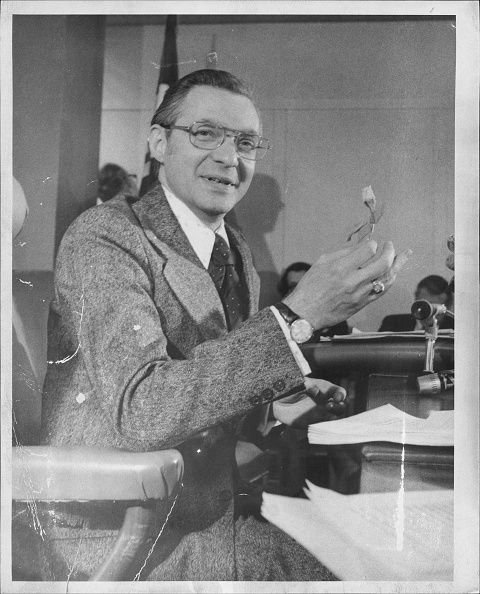
"John will be out in a moment, Mr. Wildes," Yoko said. "Let me fill you in on some details. John has an immigration problem, a drug conviction. His business dealings have brought him to the United States every so often to conclude deals, record contracts, royalties, you know…. We have a child, Kyoko, from my former marriage, whom I have been trying for some time to locate. Her father is really paranoid about it. He is convinced that the 'powerful John and Yoko' will disappear with his little daughter, and there is no convincing him otherwise. He managed to elude us for a long time. We chased him halfway through Europe." She studied me carefully as we spoke, as though assessing my sympathy for her situation.
Yoko was well-informed about legal matters relating to her husband's immigration situation and shared her concerns. "We have been critical of U.S. government policies, especially the Vietnam fiasco, and the administration probably thinks we're too vocal. I'm afraid that they will deny future extensions to us." She leaned forward, holding out her open hands as if to plead for more time. "If immigration decides to deny our extension, they might use my appearance at the Philharmonic as a pretext. I'm a conceptual artist, you know, and I perform my art in a somewhat unconventional manner. While attending a performance at the Philharmonic, I stood at my seat and conducted the orchestra. Although I wasn't paid, and most people wouldn't regard it as a performance, I could never deny that it was, given my special brand of art."
She seemed intent on making it clear that she was an accomplished artist in her own right. Alan looked sympathetic; Allen looked bored, fidgeting impatiently and still not looking at her.
A moment later, the rear door opened again, and in walked a lean, lanky young man whose long brown hair dropped almost to his shoulders. John Lennon smiled naturally, with no sense of self-importance, and extended his hand. "So you're the hotshot immigration lawyer. How d'you do?" Like a housewife angry that her husband had served nothing to their guests, he then said, "Can I brew ya some tea?" He went into the kitchen, still talking, to heat the kettle, then rejoined us. Looking at me, he said, "Do you think you can keep us here so we can find Kyoko, Leon?"
Allen explained that he'd represented John on his previous trips to the United States and had lined up congressional help to secure a waiver of John's marijuana conviction. As he spoke, Yoko seemed to grow more tense.
I asked for permission to ask a few questions before offering any opinion. "The conviction—was it the result of a contested trial?"
"Not at all," John said. "My lawyer told me that I'd best plead guilty."
"Were you guilty?"
"Actually, I was completely innocent. Now mind you, I do not deny having used hash or a lot of other junk. But at the time, we were tipped off that there would be a police raid. The drug squad at Scotland Yard was out to get rock musicians, and I was on their list. They had already bagged Mick [Jagger, as I later discovered] and George [Harrison]."
John grew serious. "Yoko and I had taken over this apartment from some musicians. We weren't on drugs at all at the time. Actually, we were on a macrobiotic diet, and drugs just didn't go. To make sure, we cleaned the apartment top to bottom."
I leaned forward. "And your lawyers still recommended that you plead guilty?"
"Well, there were lots of reasons. Yoko was an alien enemy," he crinkled his nose and grinned in mockery of the officialese of the United Kingdom. "And the lawyers said it wouldn't make any difference anyway. Besides, I had no criminal record, and they told me that only a nominal fine would be imposed, so I pled guilty and followed the lawyers' advice. Lawyers don't make mistakes, do they?" Again, the crinkled nose and the playful grin.
"What was the substance you were convicted of possessing?" I asked as I inspected the conviction documents. "Was it marijuana?"
"No, it was hash."
"Forgive my ignorance. First, I must apologize for not knowing who you are. I must also admit that I haven't the slightest idea about the difference between marijuana and hashish. Is hash the same as marijuana?"
"Hash is much better than marijuana!" John said, suddenly mimicking a teacher at an imaginary blackboard. "Let me enlighten you. Hash and grass—that's marijuana—actually come from the same plant, but the hash is much more powerful. Hash is definitely the more serious drug."
That gave me an idea, and I said, "Would you and Yoko like to remain here permanently?"
Their shoulders sagged. "That's not possible," John said, "but then again, you should know that."
I wasn't about to offer any advice or comment until I had all the information, but it was clear that I had a plan.
"Well, counselor," John added, "what sage advice can you give us two starving artists?"
Yoko settled into her chair. John seemed impatient, his body inclined toward me.
"If all you'd like is a couple of months' time to look for your daughter, with her custody case in active litigation, I think you'll have no difficulty obtaining that result," I told them. "Nor do I think there will be any problem in extending the waiver of John's conviction. I also think that if a few months' time will satisfy your needs, Alan here is more than competent to secure that time. I have just looked at the papers he prepared, and they are as good as anything I could do."
John and Yoko remained silent. They plainly were hoping for more. "On the other hand," I added, "if you would like to stay permanently, I have some suggestions."
I had brought a copy of the immigration statute and opened it to the section of law involved. Then I read it aloud: People are excludable from the United States "who have been convicted of any law or regulation relating to the illicit possession of...narcotic drugs or marijuana."
I looked up. "Every word in the statute must be taken seriously. For example, a former version of the statute did not include the words 'or marijuana.' The words were added as a result of the claims in two California cases where the persons involved claimed that their convictions involved marijuana and that marijuana was not a 'narcotic drug.' The courts had to agree, as apparently marijuana is a hallucinogen rather than a narcotic.
"In other words, it is quite possible that a conviction for possessing hash might not be the kind of conviction which should keep a person permanently out of the United States." Now Allen and Alan leaned toward me. "There is another issue which interests me. I cannot understand why a competent criminal lawyer advised a client to plead guilty. Perhaps the conviction is one which would not be considered a proper 'conviction' in our system. I think there may be some glimmer of hope here."
Yoko hunched forward, intent. "How would we go about raising these questions?"
"It's a little like a game of chess," I explained, "and there are a number of moves we'd have to make. First, you'd need to apply for permanent residence status." I turned a few pages of the statute to find the section I wanted, regarding the passage that "covers persons who are outstanding in the arts and sciences."
As I laid out my strategy, Yoko's apprehension began to disappear. John sank deeper into his seat and drained his teacup. They were both obviously pleased. They looked at each other without uttering a word, then they both turned to me, and Yoko said, "We need you. Can we have your home telephone number?"
The taxi ride from Greenwich Village to my house in Queens gave me time to think through our long discussion. As the cab approached my street, I was pleased that I certainly had a good story to tell my wife.
"So who were the 'heavyweights' you had to leave your office and go to see?" she asked as I walked into our bedroom.
"Well, let's see," I started to answer, the long evening of dealing with personalities and law and strategies swirling in my head. "I think it was Jack Lemmon and Yoko Moto."
My wife gave me a long, hard look. "Wait a minute, Leon. Do you mean John Lennon and Yoko Ono?"
"Uh, yeah," I said.
"Oh my God, Leon! Where have you been all of these years?" Ruth asked. "You really had no idea? John Lennon and Yoko Ono! I can't even think of two people more famous than they are."
Obviously, I had a lot to learn about my new clients.
Adapted from John Lennon vs. the U.S.A . Copyright © 2016 by Leon Wildes. All rights reserved.



